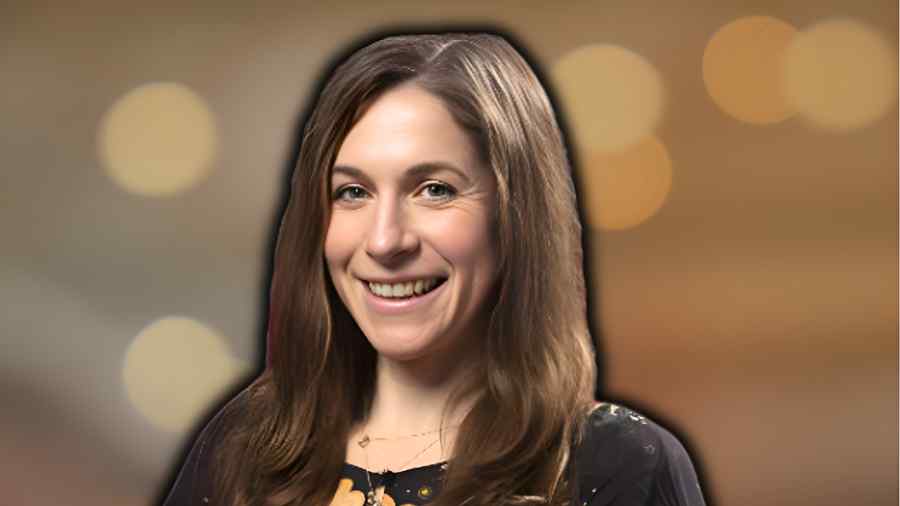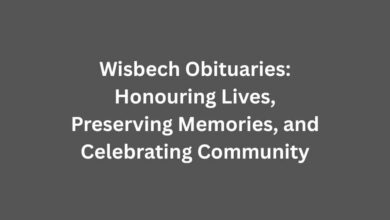Daisy Scalchi: Redefining Religion and Ethics in Modern Television

Daisy Scalchi is a name that resonates strongly within the world of British broadcasting. As Head of Religion and Ethics at the BBC, she has been pivotal in shaping how one of the world’s most respected broadcasters interprets, presents, and communicates the complex world of faith, belief, and morality to a diverse audience. Her work reflects not only a professional dedication to telling authentic human stories but also a commitment to ensuring that religious and ethical conversations remain relevant in a rapidly changing society.
Early Professional Journey
Before stepping into a leadership role, Daisy Scalchi built a career as a producer and programme-maker, demonstrating a flair for both factual and specialist content. She has worked across documentaries, factual entertainment, and current affairs, crafting stories that inform and captivate audiences. From early credits such as House Swap to travel-focused productions like Great Continental Railway Journeys and high-profile projects including The Real Marigold Hotel, Scalchi developed a track record of delivering high-quality, human-centred television.
Her extensive experience, spanning well over a decade, gave her a grounding in the mechanics of production: understanding audiences, working with contributors, and balancing the creative with the editorial. This background became crucial when she transitioned into commissioning and leadership roles, where editorial judgement and vision became as important as technical expertise.
Role at the BBC
In her current position at the BBC, Daisy Scalchi oversees the Religion and Ethics portfolio. This role requires a balance of sensitivity, innovation, and strategic thinking. Religion is not a static subject; it evolves as societies evolve, and the BBC has a responsibility to reflect both traditional perspectives and contemporary realities. Scalchi’s role has been to ensure that religious programming is not a narrow niche but part of a wider national and cultural conversation.
She has argued that religion and ethics are not only about specific faith practices but also about how people understand morality, values, and community in modern life. By expanding the scope of programming, she has sought to ensure that the BBC appeals to viewers of all backgrounds, whether they are deeply religious, spiritual, secular, or questioning.
Reimagining Religious Programming
One of Daisy Scalchi’s most notable contributions has been her ability to reimagine what religious programming can look like. Traditional religious broadcasting, often rooted in sermons or explicitly faith-based discussion, has limited appeal in today’s media landscape. Scalchi has pushed for programming that acknowledges faith as a vital part of society while also framing it in ways that resonate with the wider public.
This includes recognising that ethical questions — such as how to live well, how to balance freedom with responsibility, and how to face adversity — matter to people regardless of their religious identity. By connecting ethical dilemmas and universal values with human stories, she has helped broaden the audience for religious content.
Responding to Social Change
The context in which Daisy Scalchi works is one of rapid social and cultural transformation. Census data in the UK and elsewhere show a marked rise in the number of people identifying with “no religion.” This does not necessarily mean a rejection of all forms of belief, but rather a shift toward personal spirituality, individual ethics, or secular worldviews.
Scalchi has acknowledged this shift and recognised that the BBC must adapt. Under her guidance, the focus has expanded beyond conventional religious rituals to include explorations of spirituality, identity, and morality in modern society. This approach ensures that religious and ethical content speaks to a wider cross-section of the audience, reflecting their lived realities.
Influence on Public Discourse
Through her leadership, Daisy Scalchi has helped the BBC retain its role as a platform where complex questions of belief and morality can be discussed openly. By shaping programming that is both engaging and challenging, she has ensured that the public remains connected to debates that might otherwise be ignored.
For example, the BBC’s religious output under her guidance does not shy away from contentious or difficult issues. Instead, it seeks to explore them with depth and fairness. Whether addressing interfaith relations, moral dilemmas in politics, or the personal journeys of individuals navigating belief and doubt, the programming reflects the diversity and complexity of the modern world.
Training and Development
Scalchi’s own professional growth is also a story of continuous learning. She participated in the ScreenSkills Series Producer Programme, a scheme designed to support producers moving into senior leadership roles. Her involvement reflects not only her commitment to her own career but also her recognition of the importance of professional development in an industry that is constantly evolving.
This kind of training has allowed her to bring both creative innovation and organisational expertise to her current role. By combining artistic vision with strong leadership, she has been able to inspire teams and foster an environment where ambitious, thoughtful content can thrive.
Challenges in Religious Broadcasting
The field of religion and ethics broadcasting is not without its challenges. There is often scepticism from viewers who see religion as outdated or irrelevant. There are also sensitivities around representation: ensuring that all faith traditions are respected, that minority voices are heard, and that content does not inadvertently reinforce stereotypes.
Daisy Scalchi has had to navigate these challenges with diplomacy and editorial rigour. Her approach has been to embrace diversity and to understand that religion and ethics remain central to many people’s identities, even if expressed in varied or unconventional ways.
The Broader Impact of Her Work
Daisy Scalchi’s influence extends beyond the BBC. By redefining religious and ethical programming, she has contributed to a broader media landscape in which spirituality and morality can be discussed more openly. In an age of increasing polarisation, her work helps foster dialogue, understanding, and empathy.
Furthermore, her leadership demonstrates how media professionals can adapt to societal change without abandoning core values. By respecting tradition while embracing innovation, Scalchi has shown how broadcasters can remain relevant, trusted, and influential.
Personal Vision and Legacy
Although much of Daisy Scalchi’s work is collaborative, her personal vision is evident in the way the BBC’s Religion and Ethics output has evolved. She believes in storytelling that is inclusive, nuanced, and accessible. Her legacy will likely be one of expanding the definition of what religious programming can be, making it more relevant for younger generations, and ensuring that ethical debate remains a vibrant part of public life.
Her ability to balance creativity with responsibility is a hallmark of her career. In an industry often criticised for chasing trends, Scalchi’s focus on meaningful content provides a refreshing model of leadership.
Future Directions
Looking ahead, Daisy Scalchi’s influence is likely to continue shaping how broadcasters handle religion and ethics. With the rise of digital platforms, on-demand viewing, and social media, new opportunities are emerging for connecting with audiences in innovative ways. Scalchi’s understanding of cultural change positions her well to lead this next phase.
Future programming may further explore themes such as global interfaith dialogue, the ethical challenges of technology, and the ways in which young people are redefining spirituality. Whatever direction it takes, her work ensures that the BBC will remain a key player in fostering these conversations.
Conclusion
Daisy Scalchi has established herself as a significant figure in modern broadcasting. Through her role at the BBC, she has redefined religious and ethical programming, making it more inclusive, relevant, and engaging for today’s audiences. Her career journey from programme-maker to senior leader reflects both dedication and adaptability, while her vision continues to shape how society engages with questions of belief, morality, and human values.
By focusing on authenticity, inclusivity, and innovation, Daisy Scalchi has ensured that religion and ethics remain an essential part of the cultural conversation. Her story is not just about broadcasting, but about the enduring importance of exploring what it means to live a meaningful life in a complex and diverse world.



